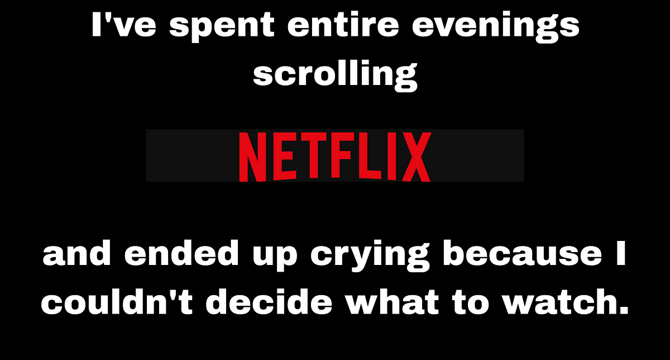Medium
1M
243

Image Credit: Medium
How Choice Paralysis is Costing Netflix $2.8B Annually and the Simple UX Changes That Could Fix It
- Choice paralysis on Netflix due to overwhelming content options can lead to users abandoning sessions during vulnerable mental health moments.
- The author shares a personal experience of feeling emotionally drained and struggling to find comforting content, highlighting the larger market failure affecting vulnerable users.
- Calculations show that Netflix loses $2.8 billion annually due to users abandoning sessions because of choice paralysis under mental health conditions.
- Neurodivergent + Mental Health conditions amplify the overwhelming effect of too many options on platforms like Netflix.
- Proposed product changes include an emotional check-in feature, 'Comfort Mode' for distressed users, and a framework for emotional intelligence in content curation.
- Netflix could lead by focusing on cognitive accessibility, emotional impact metrics, and user habit formation instead of solely optimizing for browsing time and content volume.
- Building emotionally intelligent products in tech can support users in vulnerable mental health states and create more compassionate experiences for all.
- The article emphasizes the importance of designing technology to be sensitive to users' emotional needs, with the potential to transform entertainment into a tool for emotional support.
- This shift from engagement optimization to emotional intelligence is crucial in understanding and meeting human emotional needs in the realm of streaming services.
- Now, the question is whether Netflix will lead the revolution in addressing mental health UX or risk losing out to competitors who cater better to underserved user segments.
- Designing products with compassion and considering users' vulnerable moments can lead to breakthrough improvements that benefit everyone using the technology.
Read Full Article
14 Likes
For uninterrupted reading, download the app